How will Ulez sway voters in the mayoral election?
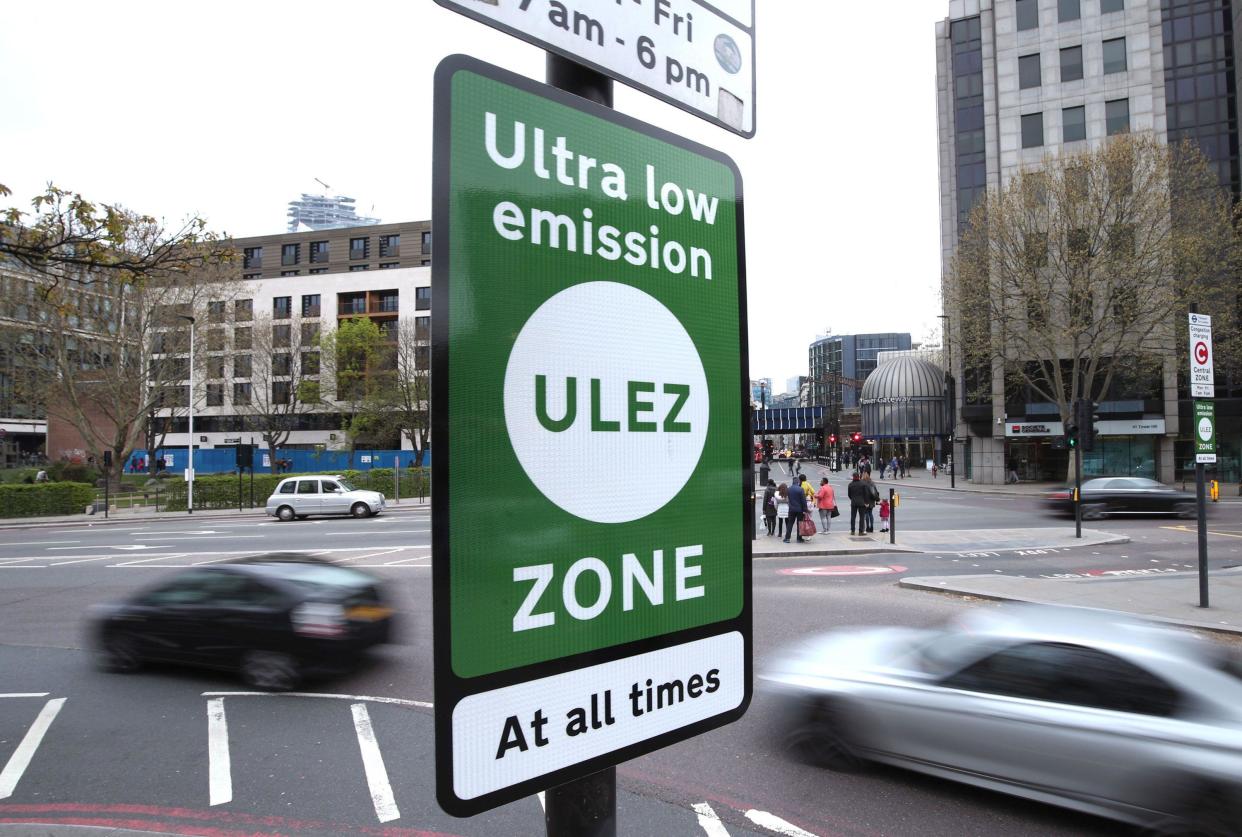
- Oops!Something went wrong.Please try again later.
The Ultra Low Emission Zone (Ulez) expansion was at one point probably the most controversial transport scheme in the country.
Six months on, figures obtained by the BBC have shown the expanded zone has generated £130m in revenues so far.
Clean air campaigners, using unverified data, claim it has reduced pollution in outer London.
So what are the other impacts of Ulez across the capital? And will it have a bearing on the mayoral election?
The ultra-low emission zone was expanded in August to cover the whole of London.
Sadiq Khan's flagship policy was to improve the capital’s air and charge those whose vehicles did not meet emissions standards £12.50 a day for the privilege.
The scheme extended the ultra low emissions zone (Ulez) for inner London in 2019 which had barely raised any opposition.
However insiders admitted that City Hall was caught off guard and surprised by the strength of feeling against the expansion.
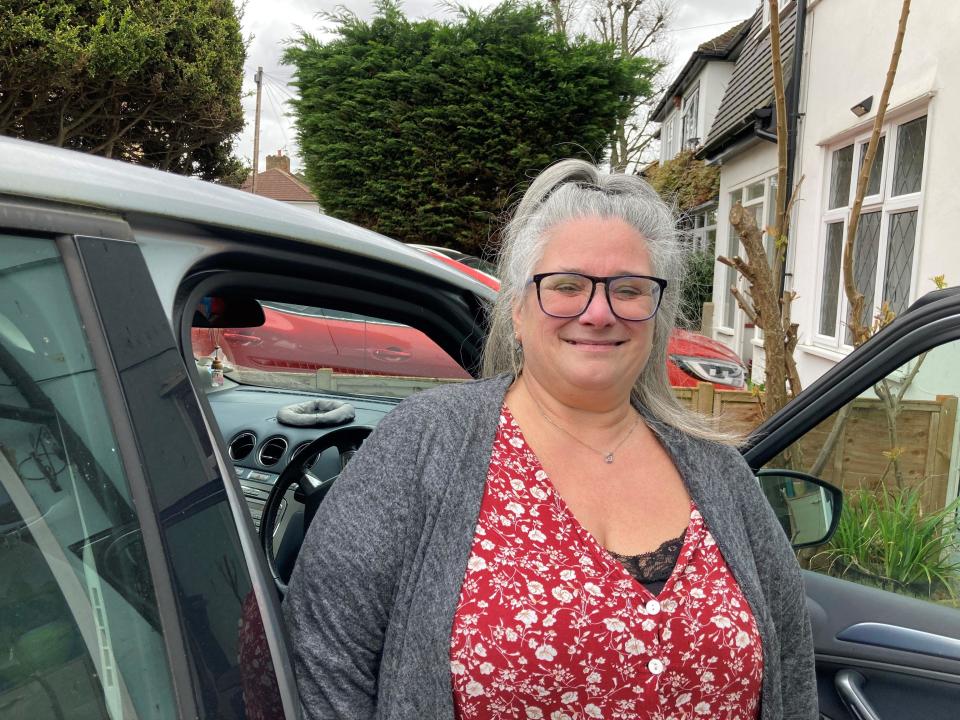
Andrea Chambers is a childminder from Surbiton.
She uses her car to transport kids around and to visit her parents.
It costs her £12.50 a day to drive it as it is an old car.
"I don't usually vote anyway because it's above me really," she said.
"But this time I will definitely be voting for Conservative because she has promised that she will stop the Ulez from day one.
"I can understand improving air quality but don't give us just a year to find a new car."
Ulez is one area where there is clear water between the two candidates of the main parties.
The Labour candidate Sadiq Khan says he will keep it as it is, his Conservative opponent Susan Hall says she will scrap it.
The Green's candidate Zoe Garbett says Ulez is a good scheme done badly and she wants a consultation on road pricing.
The Liberal Democrat candidate Rob Blackie says Londoners needed more help earlier and people should now be able to claim scrappage retrospectively.
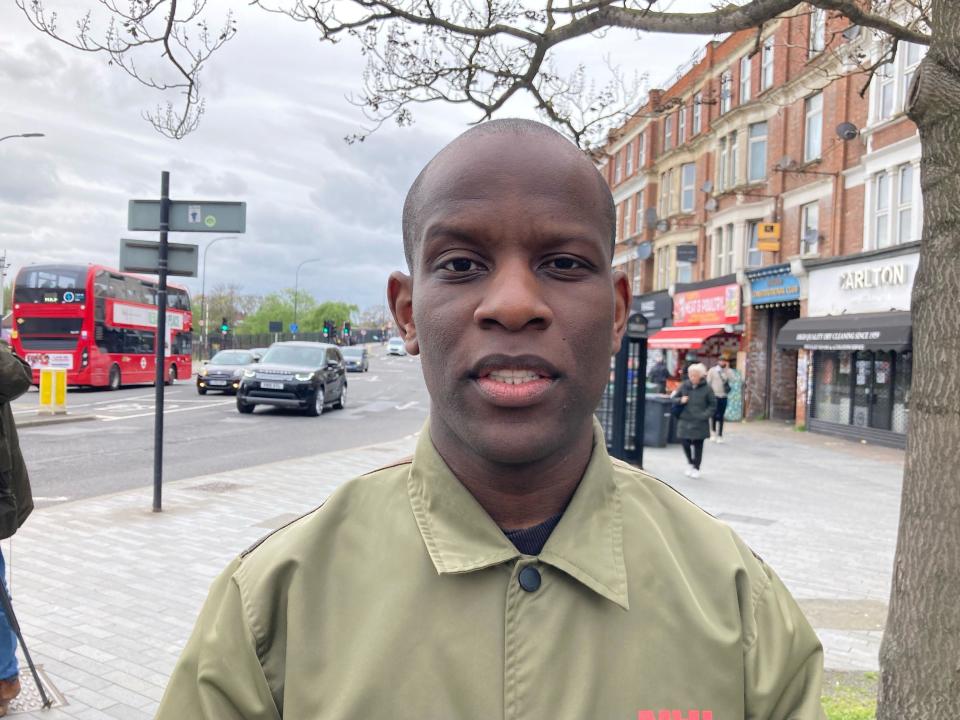
Musician Love Ssega, from Catford, who was a founding songwriter in the band Clean Bandit, is raising awareness of air quality.
He thinks the Ulez expansion will make people vote for Sadiq Khan.
"I speak to a lot of black, racialised and lower socio-economic class groups here and they like Ulez," he said.
"Just because they can see the difference it's making.
"I think they will vote for Sadiq Khan because any mayor, any candidate where you want to improve the transport and the clean air around us then of course they are going to go for that."
Last year, there was vehement opposition from some in the suburbs and soon Sadiq Khan’s political opponents started to voice their concerns too.
Critics said the benefits to air pollution were small and not worth the financial cost especially in a cost of living crisis.
So where are we now six months after the expansion of Ulez what is happening with the scheme?
The London-wide ultra low emission zone has generated more than £130m in revenues since it expanded six months ago.
Figures obtained from Transport for London (TfL) by the BBC using a Freedom of Information request shows the money generated from fines between September and February totalled £23,529,480.
The amount paid in charges by drivers of non-compliant vehicles totalling £108,118,612.
But the amount is declining. Ulez generated £26.3m in October, and that dropped to £18.3m in February.
TfL says the scheme will not make any money by 2026 as drivers switch away from more polluting vehicles and all money is reinvested in London's transport.
95.8% compliance of moving vehicles
The latest Tfl figures from October to December showed that on an average day 95.8% of moving vehicles recorded on cameras now comply with the exhaust emission rules.
On average, 45,222 vehicles pay the £12.50 a day charge.
And 30,725 non-compliant vehicles still drive in the zone and are not charged as they are vehicles subject to sunset periods such as wheelchair accessible cars.
It includes vehicles from outside London.
The average is worked out by taking the number of vehicles in a month and dividing it by the number of days.
It is a different figure to those vehicles registered in London and the home counties (the counties which surround London) which is higher.
In December, cars had a compliance rate of 96.7%.
But 23,252 vans drove in the zone and paid the charge - the compliance is a lot lower with that vehicle type at 87.8%.
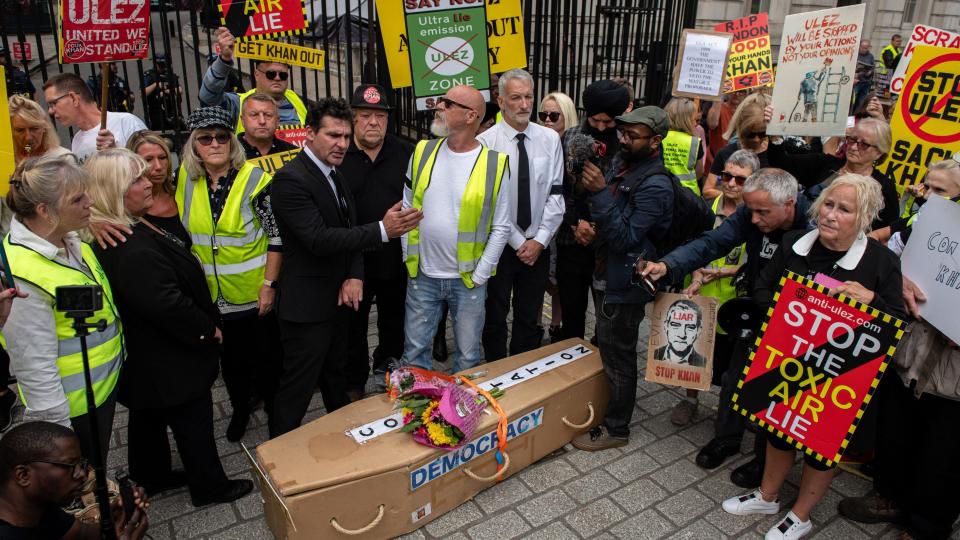
With the scrappage scheme, so far TfL has paid out almost £170m.
Eligible applicants can receive up to £2,000 for scrapping a car or up to £1,000 for scrapping a motorcycle.
The latest scrappage figures from January to March showed 123,137 applications for scrappage for cars and vans of which 49,361 were accepted.
So far £169,303,400 of funds have been committed.
A total of 54,562 van owners applied for scrappage of £4,000 but 16,190 were granted the funds, totalling £105,719,000.
And 6,634 grace applications were granted.
The borough with the highest number of applications was Hillingdon with 6,316.
Official pollution data not available
So what has happened to pollution levels?
Official pollution data will not be available until May or June.
But campaigners Clean Air in London have looked at provisional online monitoring data in outer London and says it shows nitrogen dioxide (NO2) concentrations generally lower in the first six months since Ulez expansion than the comparable period in 2022-23.
It does remain cautious that the data is unverified, excludes computer modelling results and could be due to many factors such as changes in the weather.
Simon Birkett from Clean Air in London is optimistic.
He said: "We have seen sharp reductions in nitrogen dioxide concentrations when the Ulez was introduced in central London and inner London and that's what we are expecting to see in outer London.
"It is a path that we are travelling down which is compliance rates, signs of nitrogen dioxide coming down, and then verification."
Politically, pollution charging came to a head during the Uxbridge by-election in July where the Labour hopeful Danny Beale said Ulez had been an issue on the doorstep and wanted the expansion halted.
The Conservative candidate Steve Tuckwell held the seat for the Conservatives.
Sir Keir said Mr Khan should "reflect" on the expansion.
Following those remarks, the mayor expanded the Ulez scrappage scheme to all Londoners, a measure that came in a week before the expansion came into force.
Prior to that, the scrappage scheme was aimed at lower income Londoners.
That change put pressure on the scrappage system with many of those applying suffering long waits and administrative problems. So could Ulez still be an issue?
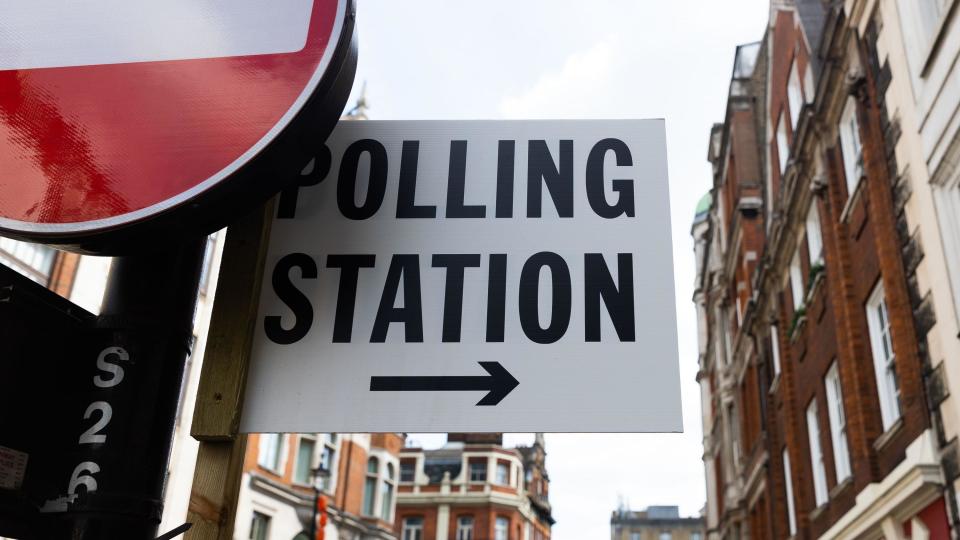
Professor Tony Travers from London School of Economics says it could play a part especially if it is a tight race.
"Well Ulez could make a difference in a very, very tight mayoral election," he said.
"If it was running 40% vs 40% then it could make all the difference.
"All the polls suggest it's a wider difference than that between Sadiq Khan and Susan Hall but it will actually be a narrower vote when we come to it on the day.
"So it doesn't look like it's going to be a knock out blow for for Sadiq Khan.
"But it is still there, it shows in the opinion polls. And it will change some people's votes."
The mayoral election is on 2 May.
Listen to the best of BBC Radio London on Sounds and follow BBC London on Facebook, X and Instagram. Send your story ideas to hello.bbclondon@bbc.co.uk

